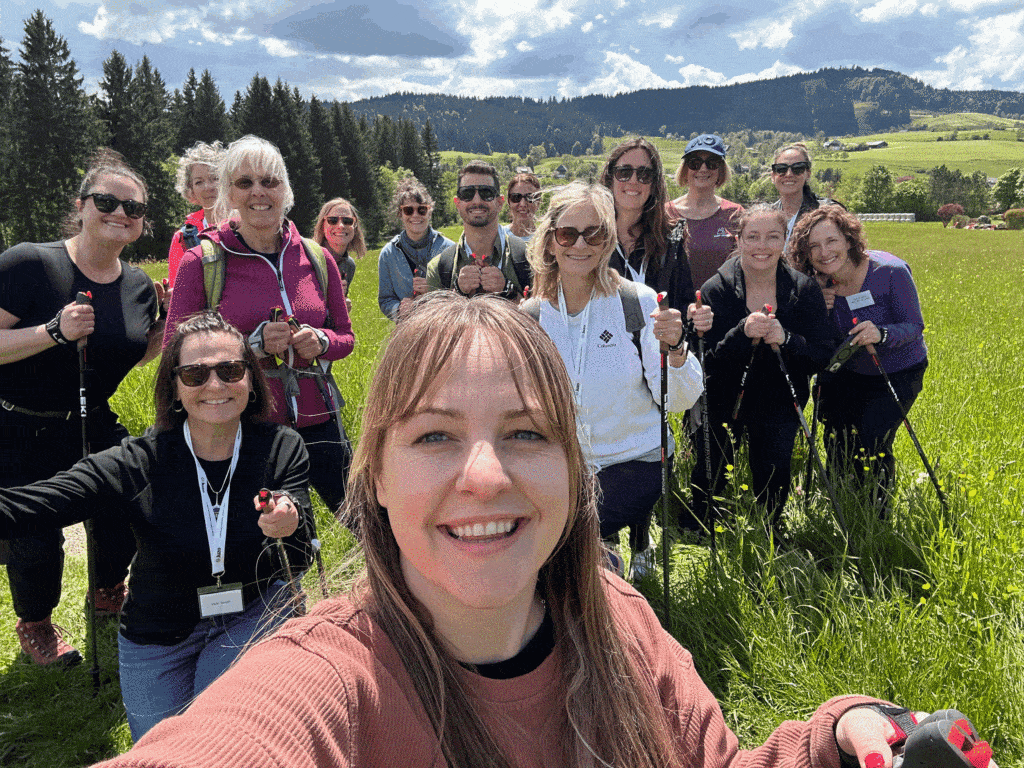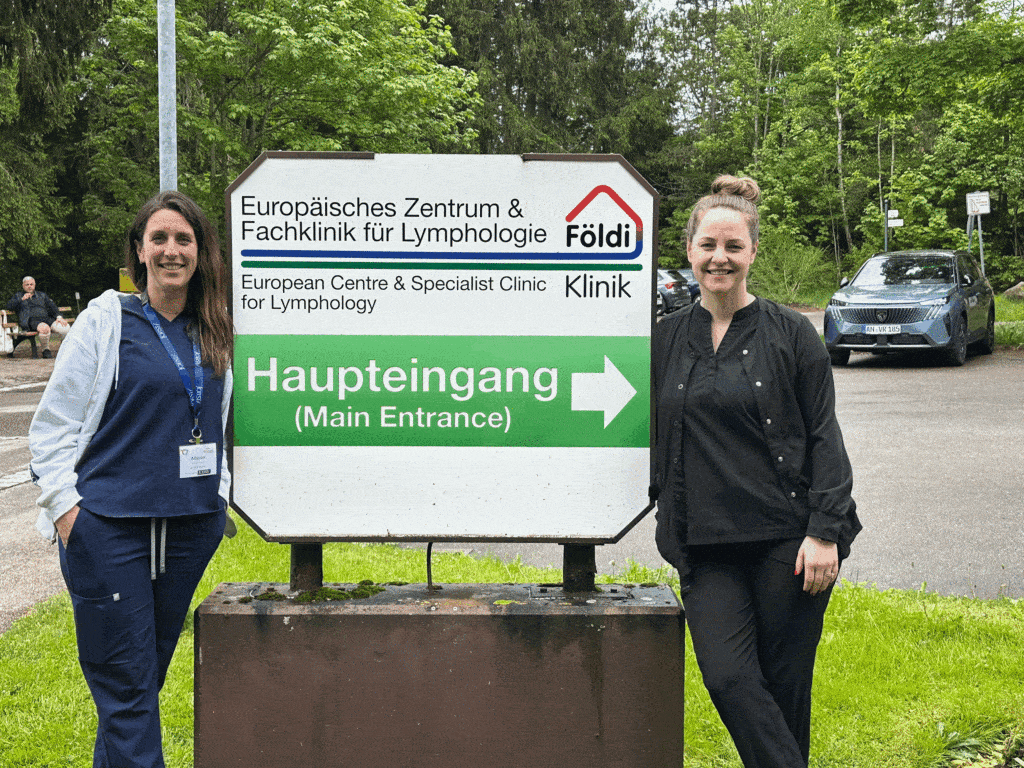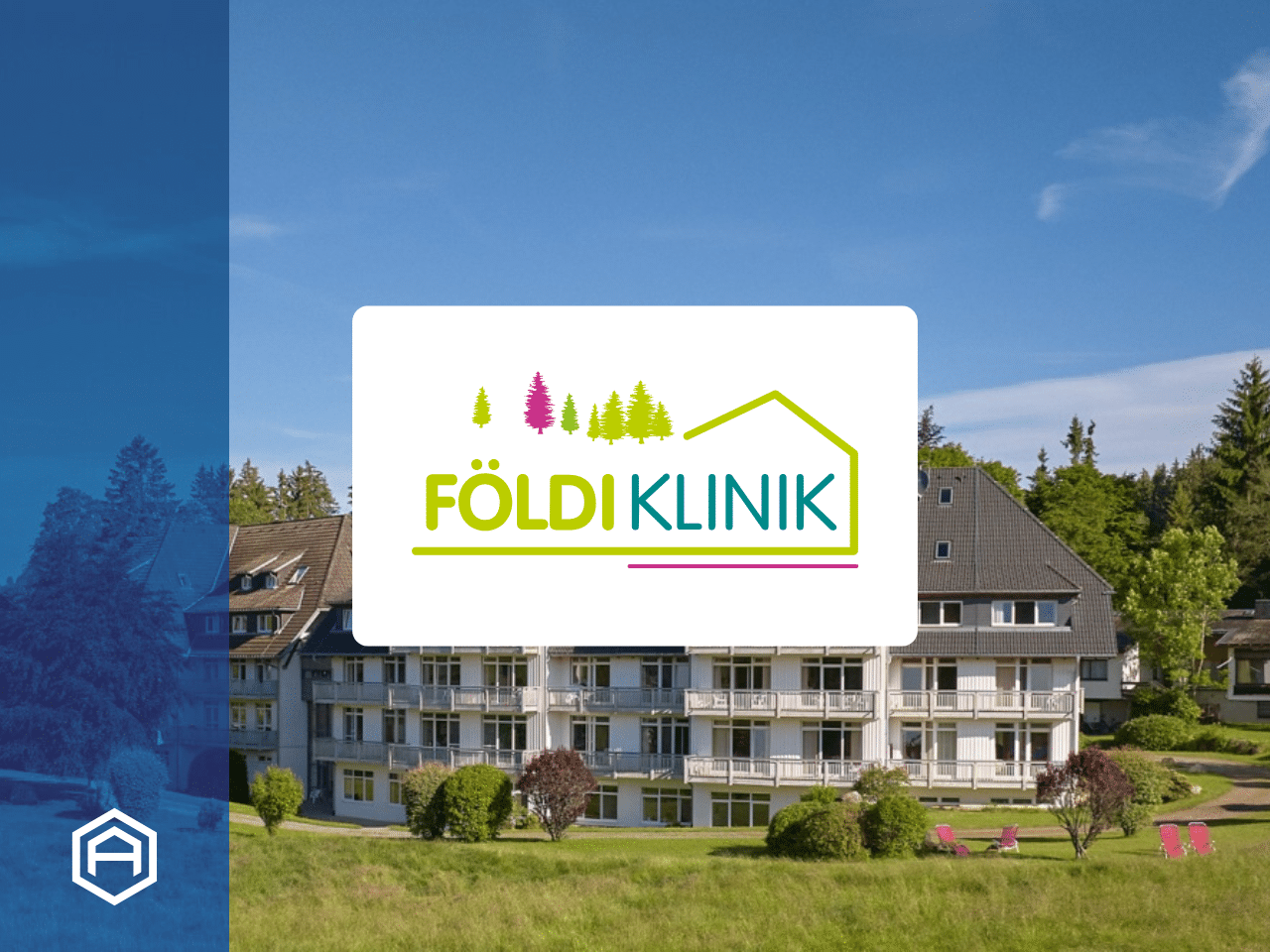“This is the future of our field.” That was the thought running through my mind as I sat down for the start of the 2nd International Földi Clinic Day in Hinterzarten. I’m excited to share highlights from this unforgettable event and the powerful conversations that shaped my experience.
As one of the clinical advisors for AIROS Medical, it is important to stay up to date in the world of Lymphology. Attending the Földi training has been on my professional bucket list for years. When I was offered a last-minute opportunity to attend, I knew I had to make it work. Some know that I am working toward applying to a Physician Assistant program, so at the time of the invitation to the conference, I was preparing for finals. Well, I took that final Tuesday morning and packed my bag for a Wednesday flight to Germany! It was my pleasure to join up with a group of talented and passionate CLTs from Connecticut for the week there at the conference and training course that followed.

The theme of the conference was “Lymphedema and Lipedema Syndrome—thinking outside the box.” Internationally recognized leaders in lymphology presented on topics focused on these, as well as others, with insights on male and female genital lymphedema, edema care in the acute care setting, patient compliance or “buy-in,” surgical interventions, and research findings that translate into updated clinical practices.
Personally, I found the presentations on psychological resilience and psychological stress and pain to be inspiring and enlightening. I’ve thought many times about these presentations and how the message is critical to our patients living with lymphedema. As a clinician, I am often the expert in the room on lymphedema, but I am aware that the patient is the expert on their psychological strain that impacts their treatment outcomes. Understanding this dynamic to treatment will help so many clinicians practice empathy and care while providing education and treatment for patients who are looking to us for answers no one else can find.
Speaking of answers no one can find, I found the conversation on the proposed paradigm shift to be missing actionable steps for clinicians. For the first time in many years, I was relieved to feel excluded from the conversation, as the majority of my patient interactions are now with children and their families. It was palpable in the room—the layer of confusion on lipedema management and the differences between the US mindset and the UK mindset.
As with many conferences and thought leaders, I do feel the presenters were respectful of each other and responded well to the questions from audience members. In the conversations following, I heard mention of “what do we do now?” I am hopeful that in the coming months and years, this conversation will continue to produce treatments that are firmly rooted in evidence-based research and practice.

Following the conference, a subset of clinicians stayed for four more days to attend an in-person training hosted by Guenter Klose of Klose Training. Colleagues from the Földi Clinic, Essity (USA and Global), and Klose Training were there to present hands-on and educational sessions. Active and ongoing learning is a basic foundation for a good clinician—it should not be optional. Learning from leaders in lymphology who are actively treating in clinical settings made my learning experience that much more impactful. Conversations and networking between members of the class between sessions and on breaks were some of the most encouraging conversations I have been a part of in some time. Truly, it is my personal belief that clinicians who are actively learning and seeking updates in information are the reason our profession is moving forward so quickly. It takes real heart and compassion to do the hard work that a good CDT requires.
A highlight of the course was the final morning when we shadowed a Földi therapist during clinical hours. I was so excited the night before when I learned I would be paired with Monika, who has been treating for more than 20 years and specializes in pediatrics. Special thanks to LR and GK for arranging that opportunity for myself and a fellow Brylan’s Feat administrator who was there as well. While I learned a new fibrotic technique I have never seen before in the States and practiced in rhythm my manual techniques side by side with Monika, the most memorable for me were the patients. Their smiles and gratitude to be in treatment were evident. They laughed and talked (in languages I don’t speak) like friends with Monika. She genuinely beamed at each person that she treated.
Clinicians in the States are tired, overworked, and feel alone in patient care—especially those who treat only lymphedema patients. Demands of productivity, scheduling, and doing everything from setting up the room to ordering garments with the DME take so much time and joy from us. I didn’t see that once at Földi Clinic. Therapists treat and provide excellent manual techniques and bandaging to patients. Fitters measure and order compression garments. Wound care nurses and doctors manage wound healing. Psychologists address mental health and meet with patients. Nutritionists educate and teach about good food and how to prepare it. The saying “It takes a village” comes to mind. Földi Clinic is not just a 60-something patient facility—it is a village of expert professionals addressing the WHOLE person seeking treatment there. From babies to senior adults, the healing work done here is inspiring.
Next summer, June 19–20, 2026, will be the 3rd International Földi Days. I encourage you to save the date and find a learning buddy to travel with. The views are spectacular, and the buzz of curiosity is palpable in the Black Forest.
